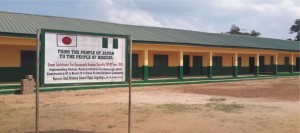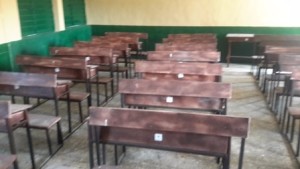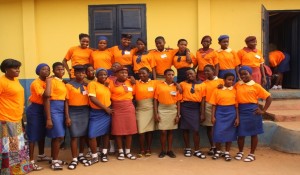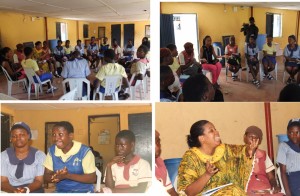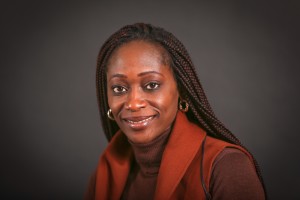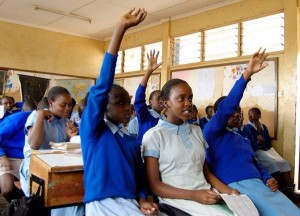KIND-Japanese Grant Assistance for Grassroots Human Security Project (GGP)
KIND was one of the 7 organizations out of an applicant pool of 200 that secured a grant from the Japanese Government to construct a 6 Classroom block with 4 toilets for Imoro Community Nursery/Primary School in Sagamu Local Government Area (LGA) of Ogun State. The grant also provided for 158 sets of chairs and desks for the students, and 7 tables ad 8 chairs for the teachers. The LGA was the only one out of the 20 in the state that elected a woman to chair its Government Council, hence our selection of the school to communicate the message ‘everyone wins when women are given an opportunity to serve in public office!’
PICTURE OF THE CLASSROOMS AND COMMENTS:
Recommendation from Japanese Officer in charge of the Project
“The Japanese Government would like to work with your Organization in 2016 because this project turned out to be one of the best of the type funded for the year.”
